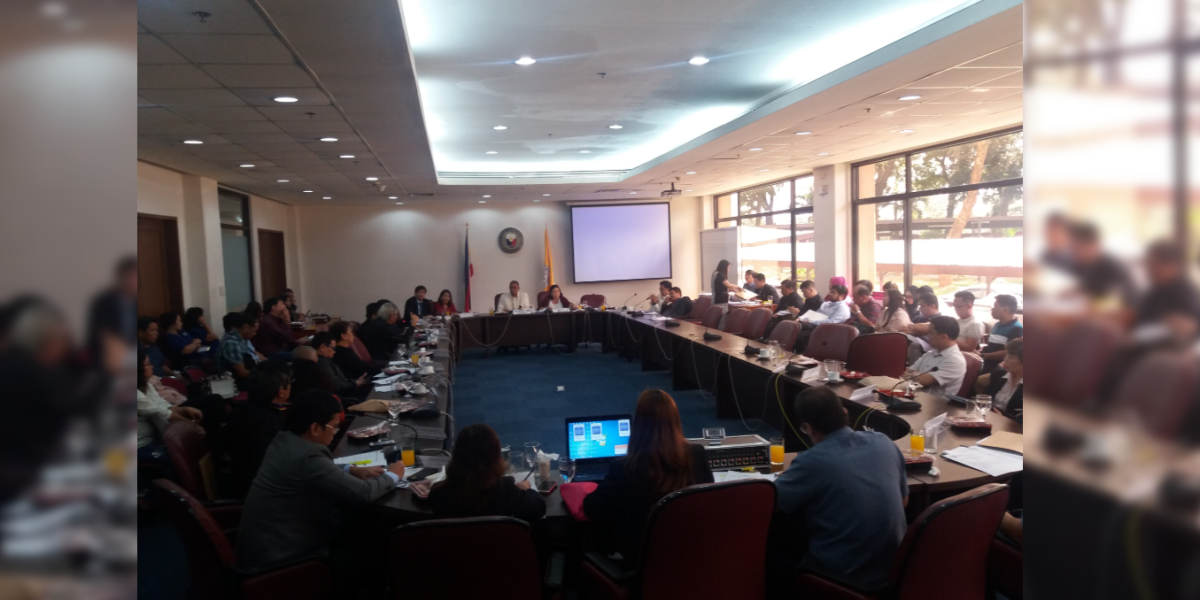Working Group to ease how co-ops obtain & maintain CTE
QUEZON CITY – The difficulties of co-ops in obtaining their Certificate of Tax Exemptions may end soon as the Bureau of Internal Revenue (BIR) and the Cooperative Development Authority (CDA) have sat down with sector leaders on March 4 in the House of Representatives to discuss the matter.
The Technical Working Group (TWG), chaired by COOP-NATCCO Representative Sabiniano Canama, met in the House of Representatives on March 4, to thresh out ways to ease the process of co-ops obtaining and maintaining the Certificate of Tax Exemption, and thereby continue to enjoy the privilege.
This is the first meeting of the TWG, which was first conceived of in November last year.
Main agenda for the TWG Discussions was the Joint Administrative Order 1-2019 – referred to as “JAO” – which details how co-ops are to accomplish and submit to the CDA the Annual Tax Incentive Report (ATIR). The CDA then consolidates the reports and submits the data to the BIR.
Cooperative Development Authority (CDA) Legal Chief Jovelyn Marquez said co-op may enjoy tax exemptions under Articles 60 & 61 of the Cooperative Code of 2008. But in exercising such privilege – and she emphasized it was a privilege – co-ops must submit the ATIR.
Co-operatives are covered by the Tax Incentive Management & Transparency Act (TIMTA), which enables Government to “monitor, review, and analyze the economic impact of tax incentives. It aims to promote fiscal accountability and transparency in the grant and management of tax incentives by developing the means to promptly measure the government’s fiscal exposure. NEDA shall conduct a cost-benefit analysis on investment incentives to determine the impact of such incentives on the Philippine economy based on the aggregate annual tax incentive reports . . .”
Furthermore, co-ops are required to submit their ATIR as a “continuing requirement for the effectivity of the Certificate of Tax Exemption (CTE) of a registered cooperative,” according to Section 1 Rule IV of the JAO.
Co-op leaders participating at the TWG meeting, as well as leaders in previous meetings with the BIR and CDA, have complained that the JAO’s penalties for non-compliance by co-ops is “too harsh.”
The penalty for the first offense says the “CTE shall be deemed revoked and registered cooperative shall be prohibited to avail of tax exemption for . . . one year.”
The JAO was approved by Dept. of Finance Secretary Carlos Dominguez on May 16, 2019. On July 5, the CDA issued Memorandum Circular 2019-06 prescribing the procedures in the submission of the Annual Tax Incentives Report by the cooperatives to the CDA.
Section 3 of Republic Åct (RA) No. 10963, otherwise known as the Tax Reform for Acceleration and Inclusion Law (TRAIN Law), requires the Cooperative Development Authority (CDA) to submit to the Bureau of Intemal Revenue (BIR) a tax incentive report availed by cooperatives registered and enjoying incentives under RA No. 9520. The information is included in the database created under RÅ No. 10708, otherwise known as the Tax Incentives Management and Transparency Act or TIMTA.
But as of November 2019, the CDA Chairman Orlando Ravanera, though a signatory to the JAO, has insisted that co-ops should be automatically exempt from paying taxes by virtue of Articles 60 and 61 of the Cooperative Code, RA 9520. Thus, there is no need for co-ops to be given Certificate of Tax Exemption (CTE) in the first place.
Canama thanked the participants and told them to expect invitations in future meetings, and requested them to gather inputs from other co-op leaders.
The meeting was attended by BIR’s Atty. Albert Tibayan and Melanie Recana, Dept. of Finance represented by Assistant Secretary Dakila Napao, CDA’s Legal Department Chief Atty. Jovelyn Marquez and Sally Trillanes, Philippine Cooperative Center (PCC) Chief Edwin Bustillos, Asian Institute of Taxation’s Estelita Aguirre, NATCCO, BANGKOOP (federation of cooperative banks), and representatives of primary cooperatives like Barangka Credit Cooperative, Novaliches Development Cooperative, San Dionisio Credit Cooperative, Tagum Cooperative, and more.

